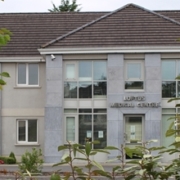Gospel and Readings 24.10.21
Thirtieth Sunday in Ordinary Time
Lectionary: 149
Reading I
Thus says the LORD:
Shout with joy for Jacob,
exult at the head of the nations;
proclaim your praise and say:
The LORD has delivered his people,
the remnant of Israel.
Behold, I will bring them back
from the land of the north;
I will gather them from the ends of the world,
with the blind and the lame in their midst,
the mothers and those with child;
they shall return as an immense throng.
They departed in tears,
but I will console them and guide them;
I will lead them to brooks of water,
on a level road, so that none shall stumble.
For I am a father to Israel,
Ephraim is my first-born.
Responsorial Psalm
R. (3) The Lord has done great things for us; we are filled with joy.
When the LORD brought back the captives of Zion,
we were like men dreaming.
Then our mouth was filled with laughter,
and our tongue with rejoicing.
R. The Lord has done great things for us; we are filled with joy.
Then they said among the nations,
“The LORD has done great things for them.”
The LORD has done great things for us;
we are glad indeed.
R. The Lord has done great things for us; we are filled with joy.
Restore our fortunes, O LORD,
like the torrents in the southern desert.
Those that sow in tears
shall reap rejoicing.
R. The Lord has done great things for us; we are filled with joy.
Although they go forth weeping,
carrying the seed to be sown,
They shall come back rejoicing,
carrying their sheaves.
R. The Lord has done great things for us; we are filled with joy.
Reading II
Brothers and sisters:
Every high priest is taken from among men
and made their representative before God,
to offer gifts and sacrifices for sins.
He is able to deal patiently with the ignorant and erring,
for he himself is beset by weakness
and so, for this reason, must make sin offerings for himself
as well as for the people.
No one takes this honor upon himself
but only when called by God,
just as Aaron was.
In the same way,
it was not Christ who glorified himself in becoming high priest,
but rather the one who said to him:
You are my son:
this day I have begotten you;
just as he says in another place:
You are a priest forever
according to the order of Melchizedek.
Alleluia
R. Alleluia, alleluia.
Our Savior Jesus Christ destroyed death
and brought life to light through the Gospel.
R. Alleluia, alleluia.
Gospel
As Jesus was leaving Jericho with his disciples and a sizable crowd,
Bartimaeus, a blind man, the son of Timaeus,
sat by the roadside begging.
On hearing that it was Jesus of Nazareth,
he began to cry out and say,
“Jesus, son of David, have pity on me.”
And many rebuked him, telling him to be silent.
But he kept calling out all the more,
“Son of David, have pity on me.”
Jesus stopped and said, “Call him.”
So they called the blind man, saying to him,
“Take courage; get up, Jesus is calling you.”
He threw aside his cloak, sprang up, and came to Jesus.
Jesus said to him in reply, “What do you want me to do for you?”
The blind man replied to him, “Master, I want to see.”
Jesus told him, “Go your way; your faith has saved you.”
Immediately he received his sight
and followed him on the way.
REFLECTION
From Catholic daily reflections.com
On hearing that it was Jesus of Nazareth, Bartimaeus began to cry out and say, “Jesus, son of David, have pity on me.” Mark 10:47
These words from Bartimaeus, the blind man, present us with the perfect prayer for a few reasons.
First, this prayer reveals the deep humility of Bartimaeus. By praying this prayer, Bartimaeus expresses the fact that he knew Jesus was the source of what he needed and that he was unable to help himself. Bartimaeus knew that he was weak but that Jesus was perfect strength. Thus, Bartimaeus humbly turned to Jesus in his need, recognizing Him as the source.
Second, it is a prayer that cries for “pity.” Pity is the feeling of sorrow and compassion caused by the suffering of others. Pity is mercy and is the form of love given to one by another who has no need of giving it. In this prayer, Bartimaeus asks the all-powerful Lord to show him kindness and mercy, even though he is unworthy of such a gift. This prayer reveals the fact that Bartimaeus knew he was undeserving of help from our Lord, but he cried out for it anyway in the hope that Jesus would help. And, indeed, He does.
Third, this prayer reveals a certain and deep passion. It is not just a request for God’s help; rather, it is a cry for help. It’s a plea and a form of begging. It’s an opening up of one’s soul to God, without concern of displaying one’s own weaknesses or worry that others will witness it or what they’ll think. This shows the depth of the blind man’s prayer.
Reflect, today, upon these three lessons from Bartimaeus’ short prayer. We must be humble, beg for mercy, and do so with deep passion and longing. Praying this way will most certainly dispose us to the grace and mercy of God.
Lord, Jesus, Son of David, have pity on me. I do humbly beg You with all my heart for Your mercy and compassion. Though I am unworthy, I seek Your grace and trust in Your goodness. Jesus, I trust in You.

 William G. Henry & Co., Solicitors
William G. Henry & Co., Solicitors Stewart Fuel Oils, Boyle
Stewart Fuel Oils, Boyle







